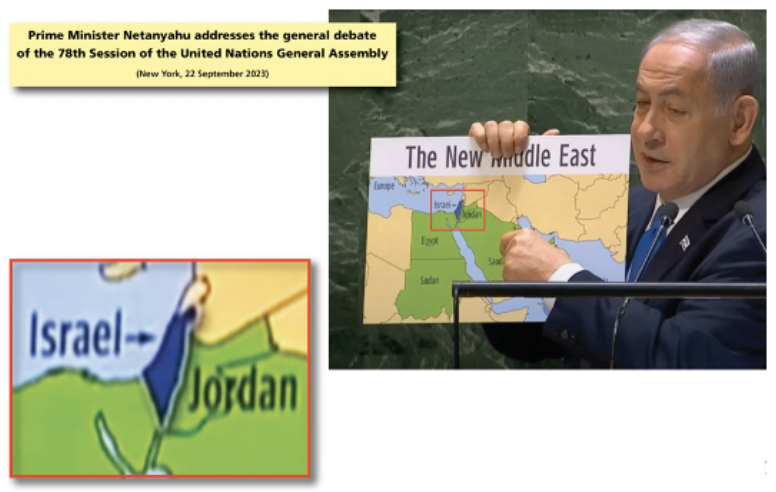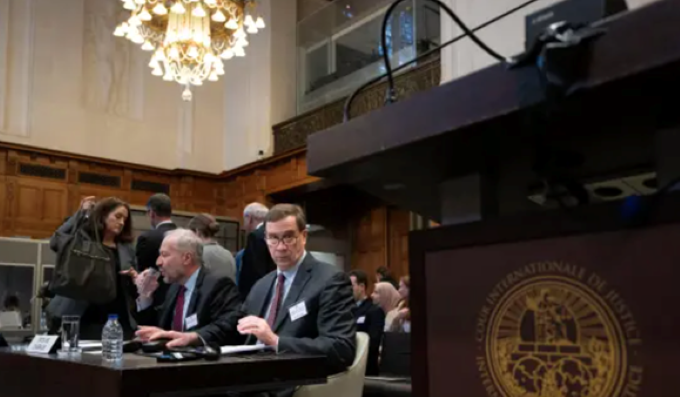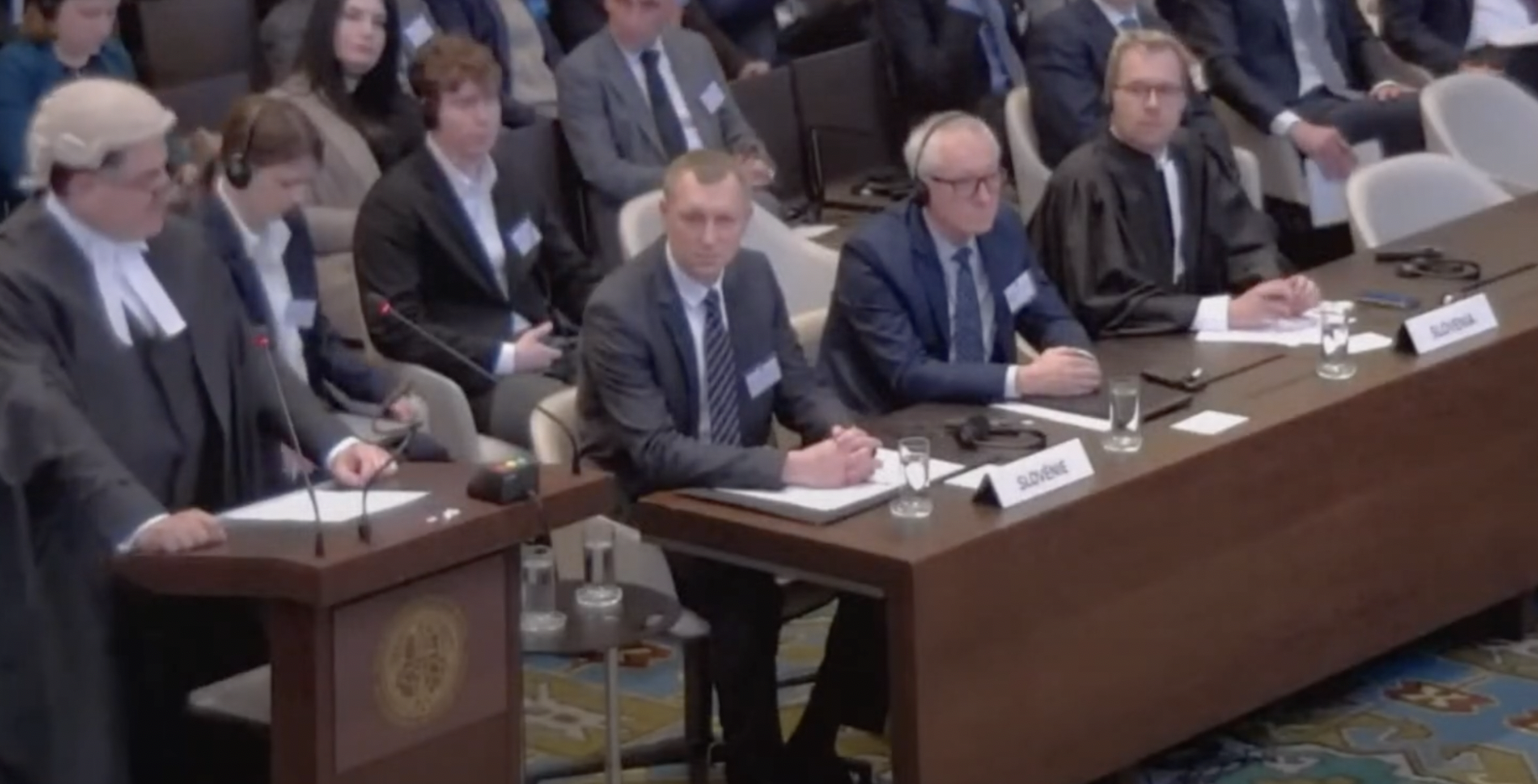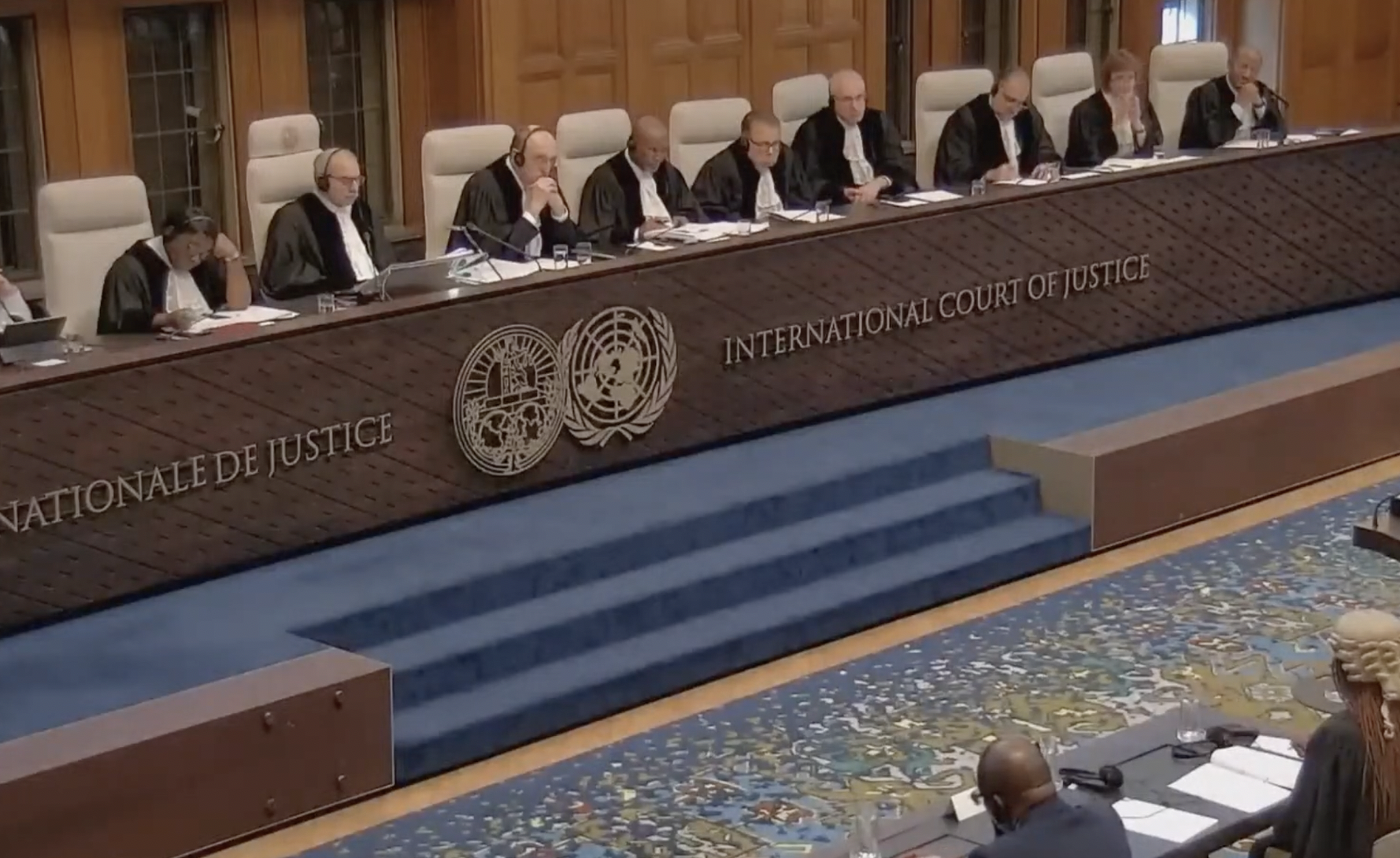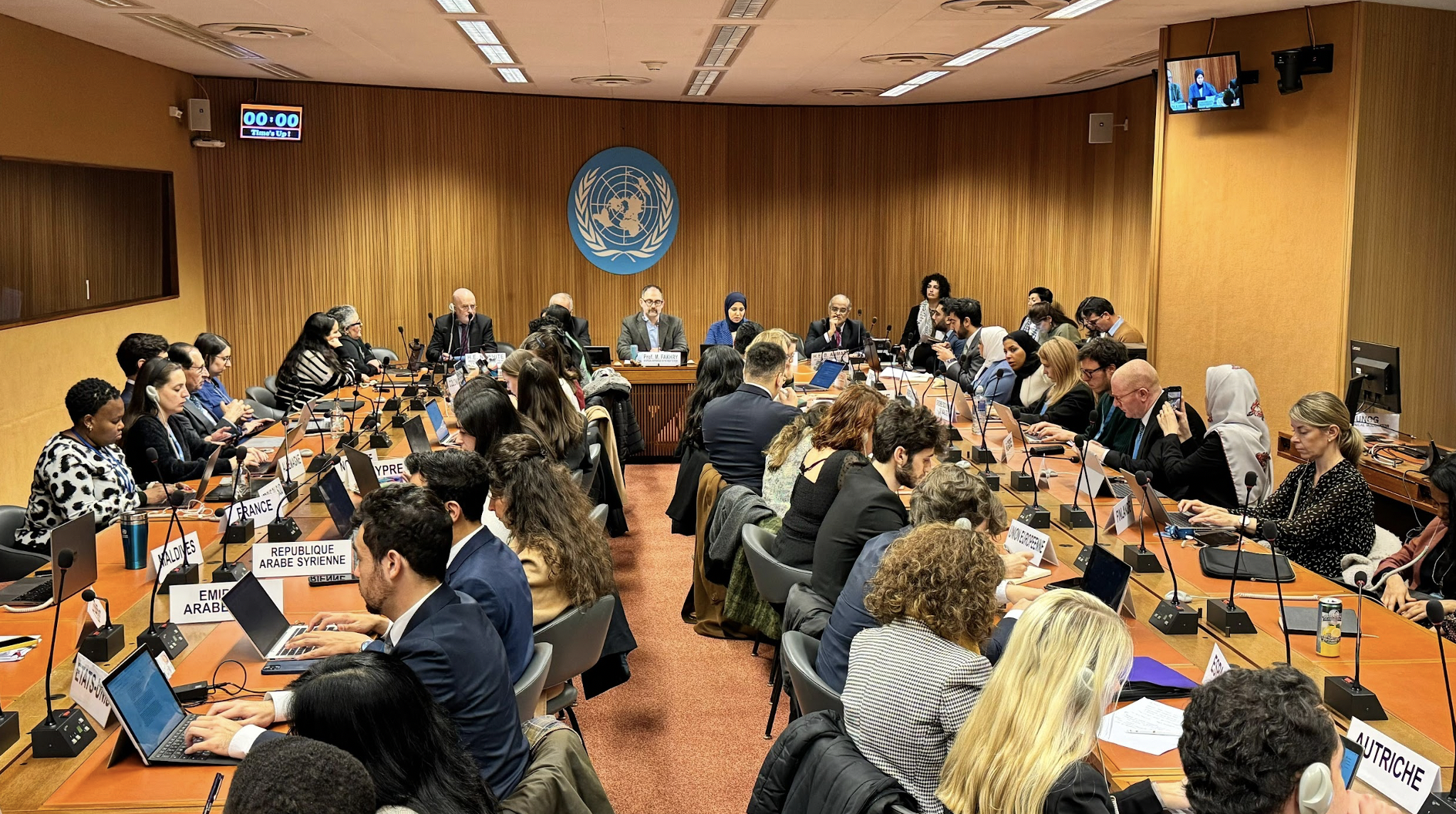
On 20 February 2024, the court continued hearings with delegations from the following countries: South Africa, Algeria, Saudi Arabia, Netherlands, Bangladesh, Belgium, Belize, Bolivia, Brazil, Canada, and Chile responding to a request from the United Nations General Assembly (UNGA) regarding issues concerning the occupied Palestinian territory. The ICJ, inter alia, grappled with the following questions:
"(a) What are the legal consequences arising from the ongoing violation by Israel of the right of the Palestinian people to self-determination, from its prolonged occupation, settlement and annexation of the Palestinian territory occupied since 1967, including measures aimed at altering the demographic composition, character and status of the Holy City of Jerusalem, and from its adoption of related discriminatory legislation and measures?” and “(b) How do the policies and practices of Israel referred to in paragraph 18 (a) above affect the legal status of the occupation, and what are the legal consequences that arise for all States and the United Nations from this status?".
South Africa
South Africa presented the first argument of the hearing. Ambassador Vusi Madonsela addressed the court by stating that South Africa's foreign policy has long advocated for a two-State solution in Palestine, yet the prevailing conditions demand a solution that addresses the fundamental injustices faced by the indigenous Palestinian population. As emphasised by South Africa, achieving a just settlement requires international assistance and a clear legal characterization of Israel's regime over Palestine. The prolonged delay in reaching a fair resolution has perpetuated a cycle of violence, highlighting the urgent need for action.
Ambassador Madonsela reminded the court that the recent legal submissions made by South Africa highlighted the gravity of the situation, emphasising Israel's persistent defiance of international law and its devastating impact on Palestinian lives. Drawing parallels with South Africa's own history of apartheid, South Africa asserts that the discriminatory policies and practices by the Israeli regime echo a more extreme form of apartheid.
Despite a clear ruling by the Court nineteen years ago calling for the dismantling of the segregating wall built by Israel in the Occupied Palestinian Territory, Palestinians continue to endure discriminatory policies and systemic violence. In the West Bank and East Jerusalem, Palestinians face arbitrary arrests, indefinite detention without trial, and a dual legal system that denies them basic rights and protections. Meanwhile, in Gaza, Palestinians live under a sustained siege, deprived of essential resources and subjected to relentless assault. South Africa urged the Court to recognize the institutionalised discrimination imposed by Israel as constituting apartheid and called for decisive action to end the cycle of violence and achieve a just settlement. As the international community witnesses the ongoing atrocities in Gaza and beyond, the urgent need for accountability and justice cannot be overstated.
The Palestinian people should be able to exercise the right of self-determination
The second speaker for South Africa, Mr Pieter Andreas Stemmet, took the floor and stated that Israel's persistent occupation and annexation of Palestinian territory since the 1967 Arab-Israeli War represents a grave violation of the Palestinian right to self-determination, a fundamental principle of international law. He reaffirmed that the ongoing construction and expansion of settlements, in breach of international law, not only disrupt Palestinian territorial integrity but also constitute a denial of their right to self-governance. Moreover, Israel's administration of the occupied territory, marked by discriminatory laws and practices, further exacerbates the violation of Palestinian rights. As emphasized by South Africa, such actions by the occupying Power contravene multiple norms of international law, including prohibitions on annexation, apartheid, and genocide. Andreas Stemmet, then concluded that the disruption of Palestinian territorial integrity resulting from Israeli settlements and annexation of parts of the Occupied Palestinian Territory, including East Jerusalem, constitutes a flagrant violation of the Palestinian right to self-determination as stated in General Assembly resolution 1514 (XV) of 1960,
“any attempt aimed at the partial or total disruption of a country's national unity and territorial integrity is incompatible with the Purposes and Principles of the Charter of the United Nations.’’
The Court, in its Advisory Opinion on Legal Consequences of the Separation of the Chagos Archipelago from Mauritius in 1965, affirmed that resolution 1514 has the status of customary international law, binding on all States, including Israel.
Saudi Arabia
In the provided written statement to the court, the Kingdom of Saudi Arabia asserts that the International Court of Justice (ICJ) has jurisdiction to issue an opinion on the recent increase in violence and destruction by Israel in the Occupied Palestinian Territory. The Kingdom argues against the claims that issuing such an opinion might influence ongoing negotiations for resolving the Israeli-Palestinian conflict. Mr Ziad Al Atiyah, representative of Saudi Arabia emphasised that the Court has previously considered similar matters and that deference should be given to the General Assembly's request for guidance. Furthermore, the Kingdom stated that Israel's actions in annexing territory, expanding settlements, and obstructing the establishment of a cohesive Palestinian state, shows Israel's lack of commitment to genuine negotiations for peace.
The advisory opinion would not prejudice the negotiation process aimed at a resolution of the Israeli-Palestinian conflict
The Kingdom of Saudi Arabia asserts that the International Court of Justice (ICJ) possesses jurisdiction to issue its opinion on the questions posed, emphasising that there are no compelling reasons for the Court to abstain from doing so. Saudi Arabia addressed opposing arguments, particularly those suggesting that the opinion might interfere with ongoing negotiations or that the dispute is bilateral and therefore not within the Court's purview, the Kingdom dismisses them as unfounded. They assert that such contentions have been consistently rejected by the ICJ in analogous situations, referencing the Court's past rulings, including the Wall Advisory Opinion. Moreover, they refute claims that issuing an advisory opinion would prejudice negotiation processes, highlighting the absence of legal foundation for such assertions and pointing to the Court's established practice of providing guidance when requested by the General Assembly.
They concluded by urging the International Court of Justice to explicitly declare the illegality of Israel's occupation of the Palestinian territories. Alongside the Kingdom of Saudi Arabia, numerous other states have meticulously outlined in their written submissions the legal responsibilities stemming from Israel's violations. Citing Article 30 of the Articles on State Responsibility and drawing upon the guidance provided by the Court in the Wall Advisory Opinion, Israel must cease its wrongful conduct, reinstate compliance with its obligations, and furnish suitable assurances and guarantees of non-repetition. Additionally, Articles 31 and 36 require that Israel provide full reparations for the extensive damage throughout the decades of its unlawful occupation. Such a declaration from the Court would not only affirm the principles of international law but also signal a crucial step towards rectifying the injustices endured by the Palestinian people.
Geneva International Centre for Justice (GICJ) continues to closely monitor the proceedings at the ICJ concerning the occupied Palestinian territory with a commitment to justice and human rights. We acknowledge the importance of the ICJ’s public hearings in the advisory proceedings regarding the State of Palestine. These hearings represent a crucial step towards addressing the ongoing violations of international law in the OPT. The GICJ urges the ICJ to carefully deliberate the evidence presented, emphasising the need for a clear and unequivocal determination regarding the unlawfulness of Israel's actions and the legal obligations of all states to uphold international law.
Read more from GICJ:




